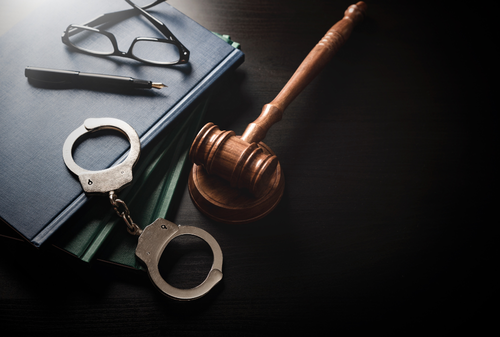You never thought you or your loved one would be arrested and charged with a crime, but here you are. What next?
It is necessary first to understand the charges against you and the sentence you may be facing. In Florida, crimes are typically categorized as either felonies or misdemeanors. Misdemeanors are, generally speaking, minor — but by no means trivial — offences under state law, while felonies are serious crimes.
Whether a crime is a misdemeanor or felony will have a significant impact on the penalties you receive if convicted. If you are facing an accusation of a criminal act, it is important to understand the difference between felonies and misdemeanors, the classification of the criminal allegations you face, what kind of penalties may apply in each case, and other facts about sentencing in Florida.
The criminal defense lawyers in Ponte Vedra Beach, FL, at Malcolm Anthony, P.A. discuss how the definitions and penalties of misdemeanors and felonies are differentiated under Florida law.
Definition of a Misdemeanor
Misdemeanors are considered less serious compared to felonies under Florida state law. While they are criminal in nature and can result in penalties, they typically involve minor harm or risk to others.
This does not mean that misdemeanors need not be treated seriously — they still can have long-term impacts on your life, as this might affect one’s chances of getting a job, finding a house, or accessing higher education due to background checks.
Examples of Misdemeanors
Common examples of misdemeanor charges in Florida include:
- Petty theft (e.g., Shoplifting)
- Simple assault
- Disorderly conduct
- Minor drug possession
Potential Penalties for Misdemeanors
If convicted of a misdemeanor in Florida, you could face:
- Fines
- Probation
- Community service
- Jail time (usually less than a year, served in a county or local facility)
Definition of a Felony
Felonies are more serious criminal offenses that are punishable by harsher penalties and long-lasting consequences. Not all felonies are violent crimes, as some involve financial matters, drug offenses, or even repeat offenses of lesser crimes. A felony conviction may affect your civil rights to vote, own firearms, or operate under specific professional licenses.
Examples of Felonies
Felony offenses include:
- Violent crimes such as, murder, rape, and armed robbery
- Drug trafficking
- Grand theft
Potential Felony Penalties
In the state of Florida, felony charges can, depending on their class, face sentences that may involve:
- The prisoner serving his or her term over a period exceeding one year. The person must be serving time in a federal or state correctional facility.
- Major fines
- Potential Loss of your basic civil rights
If charged with such crimes, getting legal representation for this offense with an accomplished lawyer should not be treated lightly.
Key Differences Between Misdemeanors and Felonies
Anyone accused of a crime in Florida has to know the differences between misdemeanors and felonies. The following are some of the fundamental variations:
- Severity of the Crime: The difference in the severity of the crime is perhaps the most apparent way in which a misdemeanor can be distinguished from a felony. Misdemeanors are usually less harmful to others or society, whereas felonies include greater harm or danger.
- Penalties: Felonies have more serious penalties, such as longer prison sentences and higher fines, whereas the penalties for misdemeanors are lighter and many times offer alternatives like probation or community service.
- Long-Term Consequences: While a misdemeanor may affect your life for a temporary period, a felony can have long-lasting consequences, such as losing your right to vote, restrictions on owning firearms, and difficulty in finding a job or housing.
- Legal Proceedings: Felony cases are more complicated and generally involve grand jury indictments or even longer trials. At the same time, misdemeanors can be concluded within a shorter period with less formality in court.
Examples of Crimes That Can Be Either Misdemeanor or Felony
Some crimes could be considered either a misdemeanor or a felony, depending on the specific facts of the crime. These designations generally depend on factors such as:
- The value of stolen property: Theft dealing with property under $750 is usually considered a misdemeanor in Florida, and over $750 is possibly a felony.
- The quantity of drugs: The possession of less than a given amount of certain controlled substances can only merit a misdemeanor charge. On the other hand, much larger quantities, along with any distribution intention, raise the offense to a felony.
- Aggravating factors: Some crimes, such as assault or battery, are considered misdemeanors unless a weapon is used or great injury occurs and then it would be regarded as a felony.
No two cases are exactly alike, and it is important to understand precisely how the law applies to your own situation.
Consequences of a Conviction
A conviction can have far-reaching consequences, impacting your freedom, finances, and future opportunities long after the case is closed.
Misdemeanor Conviction
While a misdemeanor conviction may not be as serious as a felony, it is nonetheless sure to affect your life. You will find difficulties in getting jobs, housing, or even educational opportunities. Even minor offences show up on a background check, and some companies will consider any conviction a red flag.
Felony Conviction
Felony convictions have a much wider and more long-lasting effect. Besides the possibility of imprisonment, felonies commonly lead to:
- Restrictions on civil rights, such as voting or owning firearms.
- Difficulty obtaining employment, especially in industries requiring security clearances or professional licenses.
- Challenges in securing housing or loans.
The long-term consequences of a felony conviction can be life-altering, making it vital to approach your defense with a strategic plan.
Importance of Legal Representation
Being charged with a crime can be overwhelming, whether it be a misdemeanor or felony. It is important to have an experienced criminal defense attorney to protect your rights and provide the best possible outcome.
A lawyer can work to:
- Reduce the charges against you
- Minimize penalties
- Negotiate plea deals, possibly reducing a felony to a misdemeanor
Talk With an Experienced Criminal Defense Lawyer in Florida Today
Any Florida crime may be punishable with a brief term of imprisonment, fines, or even a life imprisonment depending on the severity of the crime. Experienced criminal defense attorneys can help you build a defense with the best possible outcome.
If you or someone you know is facing either a misdemeanor or felony charge and seeking legal advice, don’t go at it alone. Contact a Ponte Vedra Beach criminal attorney to protect your rights and achieve the best possible result. At Malcolm Anthony, P.A., our criminal defense attorneys can now get to work for you.
We can help you understand your rights, explain the charges you’ve been brought against you or those that may be brought, and outline your options in seeking a more favorable outcome in your case. Our attorneys have represented individuals accused of DUI, traffic violations, assault, drug crimes, probation violation charges, and many other serious offenses.
We are committed to offering professional and comprehensive criminal defense services to our clients and their families. Call us today at (904) 285-4529 for your free consultation.



